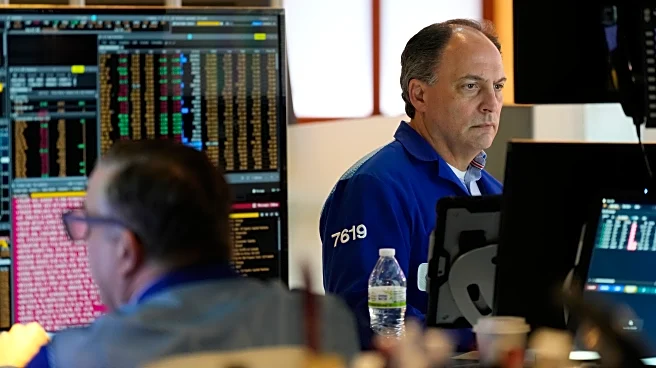What's Happening?
Israeli Prime Minister Benjamin Netanyahu announced that the ongoing conflict in Gaza will only conclude after Hamas is disarmed. This statement marks the second phase of the truce, which involves the demilitarization
of the Gaza Strip. Netanyahu emphasized that the process could be achieved either easily or through more challenging means. The Rafah border crossing between Gaza and Egypt remains closed, contingent on Hamas fulfilling its ceasefire obligations, including returning the remains of hostages. The situation remains tense as accusations of ceasefire violations persist, with reports of continued casualties.
Why It's Important?
Netanyahu's declaration underscores the complexity of achieving a lasting peace in the region. The disarmament of Hamas is a contentious issue, with significant implications for regional stability and security. The closure of the Rafah border crossing affects humanitarian aid and the movement of people, exacerbating the humanitarian situation in Gaza. The international community, including the U.S., plays a crucial role in mediating the conflict, with potential repercussions for diplomatic relations and regional alliances.
What's Next?
The next steps involve monitoring Hamas's compliance with the ceasefire terms and the potential reopening of the Rafah crossing. The international community's response, particularly from the U.S., will be pivotal in shaping the conflict's resolution. Continued violations or escalations could lead to renewed military actions, affecting regional stability and international diplomatic efforts.
Beyond the Headlines
The conflict raises broader questions about the long-term viability of peace processes in the region and the role of international actors in conflict resolution. The humanitarian impact on Gaza's civilian population remains a critical concern, highlighting the need for sustainable solutions that address both security and humanitarian needs.










